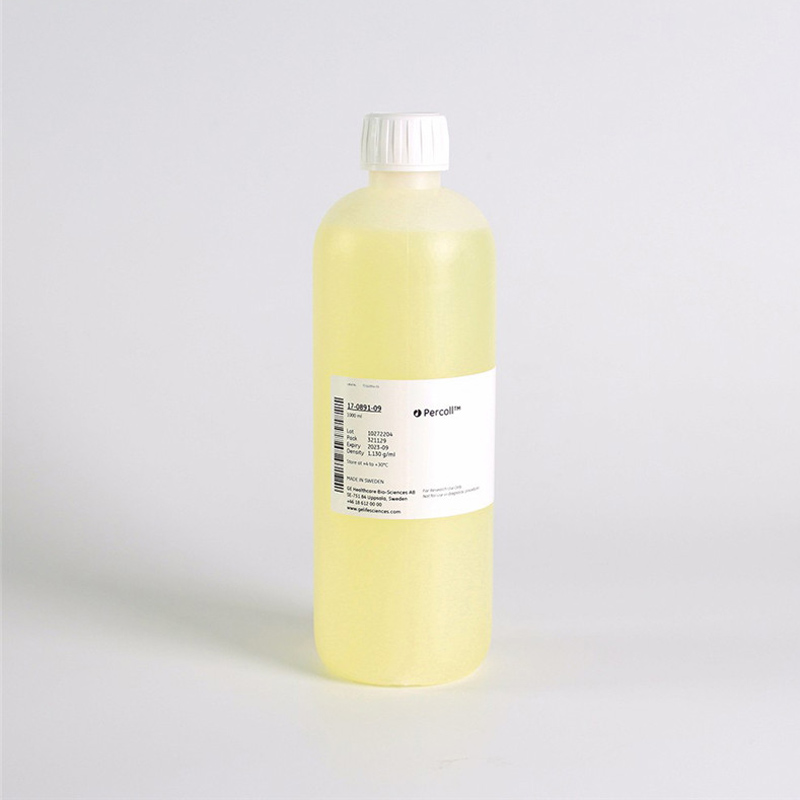
A low-viscosity, non-toxic medium suitable for density gradient centrifugation of cells, viruses and subcellular particles.
Composed of colloidal silica coated with polyvinylpyrrolidone (PVP), which gives low osmolality and low viscosity.
For separation of cells, subcellular particles and larger viruses (down to ~ 70S) under gentle conditions which preserve viability and morphological integrity.
Non-toxic to cells.
Adjustable to physiological ionic strength and pH.
Gradients can either be pre-formed or spontaneously generated by centrifugation at moderate speeds in an angle-head rotor.
Gradients are iso-osmotic throughout and cover a range of densities up to 1.3 g / mL.
Quick and easy
Percoll is a low viscosity density gradient medium for preparation of cells, subcellular particles, and larger viruses. The low viscosity of the medium enables cell preparation on preformed gradients in only a few minutes using low centrifugal forces (200 to 1000 × g). The medium is available in easy-to-open, resealable 250 mL and 1 L bottles.
Other attributes
Percoll consists of silica particles (15 to 30 nm diameter) coated with non-dialyzable polyvinylpyrrolidone (PVP). Free PVP is present at only 1% to 2%. Percoll is non-toxic, almost chemically inert and does not adhere to membranes. Percoll gradients can be formed within the density range of 1.0 to 1.3 g/mL, and are iso-osmotic throughout.
Percoll can be stored unopened at room temperature for five years. At -20°C, it can only be stored for up to six months.
If stored at -20°C, gradients form upon thawing, necessitating a mixing of the bottle before use. Preformed gradients can be stored for weeks without a change in gradient shape, provided that the gradient remains unfrozen.
Percoll can be buffered within the pH range 5.5 to 10.0 without any changes in properties. If pH drops below 5.5, gelling may occur. Gelling can also be caused by the presence of divalent cations, an effect which is exacerbated by elevated temperatures.
Undiluted Percoll can be resterilized by autoclaving for 30 min at 120°C.


